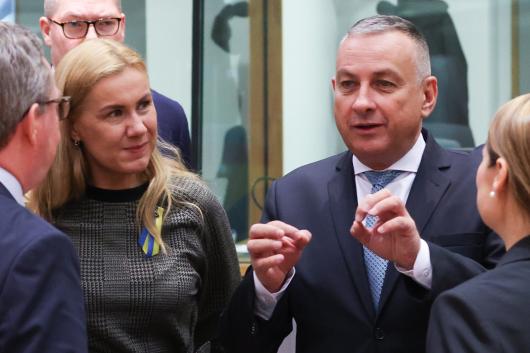
Ministers agree on a solution to high energy prices and its financing
30.09.2022 / 19:00 | Aktualizováno: 05.10.2022 / 12:23
The Czech Presidency of the EU convened the second extraordinary meeting of the Energy Council this month. At the meeting, ministers agreed on the final form of the European Commission's (EC) proposal to tackle high energy prices. Ministers also discussed the various options for an EU-wide solution to the problem of high gas prices. In addition, the Danish, Swedish and German delegations reported on an incident on gas pipelines in the Baltic Sea.
"The situation in the energy markets remains critical. I therefore thank the European Commission for preparing the draft regulation in such a short time and for the cooperation of all Member States in the agreement we have reached today," said Minister Jozef Síkela, adding: "A crucial measure is the introduction of a temporary cap on the revenues of electricity producers using cheaper sources than gas at 180 euros per megawatt hour. Member States can use revenues above this threshold to finance measures that will reduce energy costs for households. This measure should redirect a total of up to €120 billion of electricity producers' profits towards EU households."
In the case of small and medium-sized companies, i.e. companies with a turnover of up to CZK 1.25 billion and 250 employees, the ministers agreed to allow exemptions from the public aid rules and agreed on the possibility of price intervention also for this group of customers, regardless of the industry in which they operate.
"For them, this means predictability, certainty, the possibility to plan, to price their products, at least for the whole of next year 2023. I am pleased that this proposal has been negotiated," said Minister Síkela, adding that the Commission has also promised to decide soon on the extension and expansion of the so-called temporary crisis framework to help larger companies affected by the Russian aggression against Ukraine.
Ministers also agreed to reduce electricity consumption across the EU. They set a voluntary overall target of 10% reduction in electricity consumption and a mandatory target of 5% reduction in electricity consumption during peak hours. Another agreed measure is a solidarity contribution from companies in the fossil fuel sector. This contribution will amount to a minimum of 33% of excess profits. These funds will also be fully used to support consumers in the individual Member States.
The ministers also called on the European Commission to bring forward a number of other measures to address high gas prices and their impact on electricity prices. These measures could include, for example, the introduction of a price cap on imported gas or a new European index parallel to the TTF to better reflect the world market situation.
Ministers also supported the swift launch of joint gas purchases through the EU Energy Platform. This joint approach will clearly increase the EU's bargaining power on the world gas market, helping to secure gas supplies to the EU at affordable prices.




